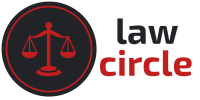Charlotte School of Law Lawsuit
by Ayden

Charlotte School of Law – Lawsuit Loan And Law Tuition Assistance
For-Profit Charlotte School of Law has closed, state officials announced today, closing down a troubled for-profit school, bringing an end to what some see as a public-relations nightmare for the state. The sudden announcement by the school’s board of trustees comes at a time when many states are grappling with deep cuts to public higher education. The closure comes just weeks after the U.S. Department of Education announced a new round of budget cuts across all U.S. schools that go beyond the budgets for higher education. In North Carolina, the closure means the abrupt end of a long standing relationship between the for-profit Charlotte School of Law and the state’s two largest higher education institutions.
The for-profit school had been in the news since at least the spring , when The New York Times reported that it was in talks with the Bankruptcy court regarding a possible merger.
At the time, the school had announced that a merger was in the works and would be announced “in coming weeks.” However, in the fall, the school came out saying that negotiations with Bankruptcy court had “not concluded,” but were still “on the table.” Then in November, the school announced that it “has entered into an agreement to merge its Charlotte School of Law program with another accredited law firm located in the Charlotte area.” Despite that effort, the lawsuit still remains.
While no one can say for sure what motivated the school to leave the accreditation standards for Charlotte School of Law in the fall, there are a number of likely suspects.
The most prominent would be the abrupt loss of the former Professor of Legal Studies, Richard F. Costner, who left the school in May of this past year to pursue a position at the University of Colorado School of Law.
His departure came on the heels of revelations that he had led a team of former students to tamper their test scores to make their cases more successful. He’d also previously served as an instructor at Duke University, according to the latter’s website.
The reason for the decision to drop the accreditation standards for Charlotte School of Law was that they believed they no longer needed them due to the relatively recent surge of student litigation activity.
According to the Charlotte Business Journal, lawyers “are relying on their own intuition and experience to make sense of complex cases that have legal aspects that are not understood by the legal system.” And in a letter to the North Carolina State Bar Association, the school’s lawyers stated that relying on intuition and experience is not enough to ensure the quality of one’s legal education: “It is also important that we rely on the judgment of our professors, who are trained in the best legal practices and can demonstrate their knowledge and expertise regarding the matter.” In other words, the lawsuit may have been justified, but the Charlotte School of Law did not provide its students with sufficient training to enable them to conduct it successfully.
However, it is important to note that the school does not actually admit students. They are considered “in applicant” status until they receive their actual law tuition. If you’re interested in a Charlotte School of Law lawsuit, you are going to need to submit your application on your own. This can take up to two weeks, after you complete your FAFSA (Free Application for Federal Student Aid) form.
If you’re applying for federal student aid or a federal law scholarship, you should be prepared to wait at least a full year before you can expect to receive anything.
It will likely take this long because many applicants were unable to obtain either of these grants in the previous year due to high demand. Therefore, during the first two years of your employment at the Charlotte School of Law if you have a legitimate lawsuit, you should not hesitate to pursue your dreams of becoming a practicing attorney.
The Charlotte School of Law also offers tuition assistance for working professionals who wish to pursue a law degree.
There is currently a great deal of litigation going on in Charlotte. Therefore, there are a lot of lawyers and paralegals working at the Charleston school. Most of them will be working on real estate, corporate law, and litigation. Many of them will be accepting only full-time students this coming year to help make room for incoming students.
The Charlotte School of Law has an online portal that allows you to apply for your lawsuit loan online without having to fax your paperwork through the mail. It takes less than a minute to apply, and it may be submitted on your cell phone. You will also be able to get instant confirmation of your acceptance via email. It is important to note that there is no additional tuition for applying to the Charlotte School of Law. If you are researching law tuition options online, you should keep all of these factors in mind.
Charlotte School of Law – Lawsuit Loan And Law Tuition Assistance For-Profit Charlotte School of Law has closed, state officials announced today, closing down a troubled for-profit school, bringing an end to what some see as a public-relations nightmare for the state. The sudden announcement by the school’s board of trustees comes at a time…
Recent Posts
- Justice for Abuse Survivors: High-Profile Cases that Made a Difference
- Nexium Cancer Lawsuit
- New Balance Lawsuit Balance Athletica
- Neopets Class Action Lawsuit
- Fastenal’s Fastened to Lawsuits: A Rundown of Legal Tangles
- The Curious Case of Fantasia: Lawsuits and Melodies
- Falls Motor City: Screeching to a Halt with False Advertising Allegations
- Soaring into Controversy: The Murky Skies of Falcon Insurance Lawsuits
- Milk Money Matters: The Fairlife Lawsuit Explained
- Navigating the Maze: What You Need to Know About FCRA Lawsuit Settlements
